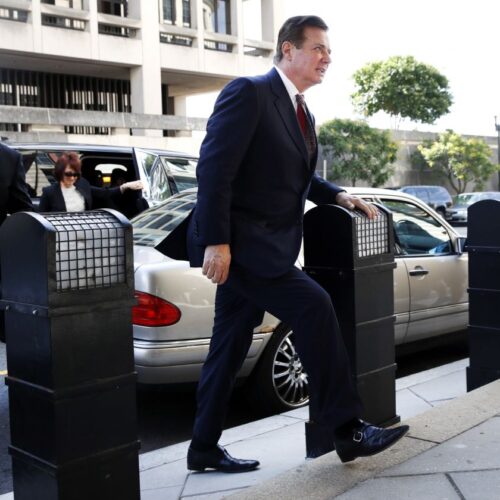Introduction
Paul Manafort, President Donald Trump’s former campaign chairman, has been in the news for months since Special Counsel Robert Mueller charged him and his associate Rick Gates with several alleged crimes, including fraud and working as unregistered foreign agents.
Manafort’s federal trial began this week in Alexandria, Virginia. The intense scrutiny of Manafort’s case has also renewed interest in Manafort’s appearance in a report the Center for Public Integrity published in 1992, entitled “The Torturers’ Lobby.” Among prominent publications recently citing it: Newsweek, USA Today, The Guardian and NPR.
The report detailed how major D.C. lobbying and public relations firms represented authoritarian regimes with poor human rights records, including China, Saudi Arabia and Kuwait. One of the top firms paid by these foreign governments? Manafort’s firm at the time — Black, Manafort, Stone and Kelly.
To help shed light on the significance of that report and the influence of foreign lobbying then and now, we contacted Pamela Brogan, the author of the “The Torturers’ Lobby,” and a former Washington journalist.
Q: Where did the idea of “The Torturers’ Lobby” report come from?
A: As an investigative reporter, I noticed from foreign lobbying registration forms that several Washington insiders, former Republican and Democratic operatives, were reaping millions in lobbying fees from representing dictators and authoritarian regimes with widely criticized human rights records. Lobbyists such as Paul Manafort and others were hired to lobby Congress for massive increases in foreign aid paid for by U.S. taxpayers. Critics argued these lobbyists were undermining a key U.S. policy — promoting human rights abroad. Other critics said the White House and Congress were ignoring the Foreign Assistance Act that barred military and economic aid to countries whose government “engages in a consistent pattern of gross violations of internationally recognized human rights” which is defined to include torture.
Q: How long did it take to research and investigate the report?
A: It took about eight months to complete the study because at the time the foreign lobbying reports at the Justice Department were not computerized. Hundreds of pages of documents were reviewed. It was a difficult task because the registration data was often incomplete and foreign agents missed reporting deadlines. Numerous interviews with human rights organizations, Congress and foreign agents, also were conducted for the study.
Q: Why do you think the report is getting so much recognition now?
A: The report documents that Paul Manafort has a history of representing authoritarian regimes and collecting millions of dollars in lobbying fees. Manafort and his business partner Rick Gates are facing charges by Mueller that they failed to register under the Foreign Agents Registration Act (FARA) as a lobbyist for the government of Ukraine and generated “tens of millions of dollars” for their work.
Q: Did the report get publicity at the time it was published? What were some of the reactions or results?
A: The report made headlines, domestically and internationally. Unfortunately, as was the case 26 years ago, the Justice Department does not seem to have a consistent policy for enforcing foreign lobbying laws. Instead, the law only comes under congressional and Justice Department scrutiny when there is a scandal.
Q: It’s obviously been a long time since the report came out. But what would you say were the biggest findings at the time and what should/could people take away from reading it now?
A: It’s obvious that the foreign lobbying laws need to be strengthened and the Justice Departments needs a consistent enforcement strategy. The American people should know who, how, and how much money individuals are receiving to represent the interests of foreign governments, especially regimes whose priorities are at odds with U.S. policies and might be working to undermine our national security and democracy.
Q: Anything else you’d like to share about your experience covering lobbying or Manafort’s work?
A: The media needs to follow the money and report on the activities of foreign and domestic lobbyists. The American people need to know who is a hired gun for a foreign government or domestic interests. This means that financial interests of sources quoted in articles or interviews, who might be lobbyists or foreign agents, should always be disclosed so the American people can decide whether their views are credible.
READ MORE:
Read more in Money and Democracy
Money and Democracy
As intolerance grows, targeted religious groups join forces
The rise in religious hate crimes is prompting different religious groups to take measures to protect and help other people attacked for their faith.
Money and Democracy
Millions are victims of hate crimes, though many never report them
An investigation of a growing climate of hate in the United States through national crime victimization data analysis and on-the-ground reporting in 36 states


Join the conversation
Show Comments